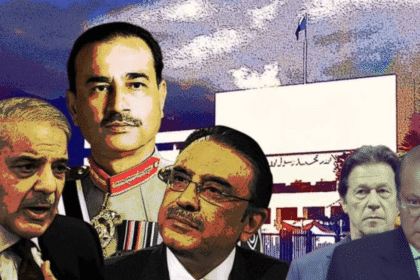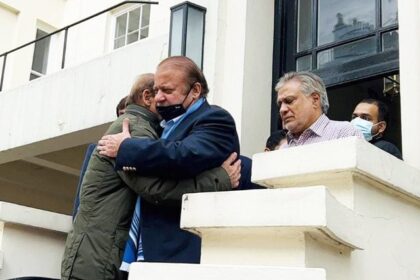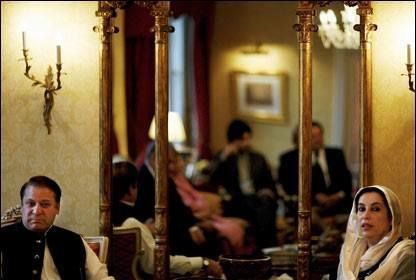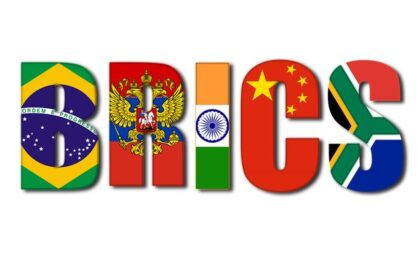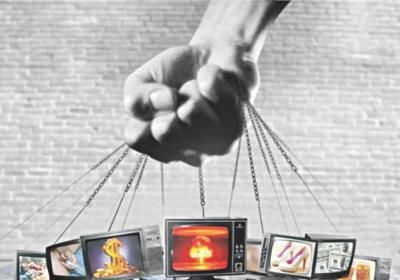Zohran Mamdani’s run for mayor is about more than New York City. It’s about who belongs in the world’s city — and who does not. His potential victory could reshape the world’s view of municipal governance and inspire copycat movements worldwide.
Even the potholes have politics in New York. However, this year’s race for mayor has more at stake than the typical pile-up of sanitation budgets, subway slowdowns, and wrangling over congestion pricing. It presents a referendum on something deeper: what kind of city New York dares to be amid a world in conflagration.
And into that arena steps Zohran Mamdani, a 32-year-old democratic socialist, State Assemblymember from Queens, tenant organiser, and son of Mira Nair, the world-renowned filmmaker behind Monsoon Wedding and The Namesake. Nair’s films excavate diaspora, injustice, and transnational belonging. Mamdani is now channelling those same questions, not onto the screen but into the ballot box.
With Mamdani reportedly preparing to run for mayor, the 2025 election could become a political litmus test, not just for the city’s left but for global solidarity movements, immigrant political power, and the very purpose of municipal governance in the 21st century.
From Gaza to Gracie Mansion
What does a ceasefire in Gaza have to do with rubbish collection in Tribeca? In 2024 and 2025, everything.
As Israeli airstrikes intensified and student protests erupted across the US, New York became one of the most charged arenas for Gaza solidarity — through mass marches, city council resolutions, and high-profile campus occupations. Mamdani didn’t just stand with protesters; he helped author ceasefire legislation, decried NYPD crackdowns, and implored the city to act as more than a passive bystander.
Much of Mamdani’s support has been nurtured not in smoky backrooms or campaign headquarters, but in university quads and protest circles. These are young people radicalised by student debt, campus police, and watching classmates get arrested for calling out injustice. For them, Gaza isn’t just a theory; it’s the start of a political awakening. Mamdani’s campaign is, in many ways, an outgrowth of that education — not the kind handed out in lecture halls, but the kind earned in sit-ins and solidarity tents. It’s not politics as usual; it’s politics that grew out of a wound and turned into a cause.
For his growing base of supporters, this wasn’t symbolic. It was an affirmation that municipal leadership can be morally courageous — even on matters that transcend borders.
‘Our solidarity must not stop at the Hudson,’ Mamdani declared. That line has become a rallying cry in spaces where localism meets liberation.
A New Diaspora Politics
Mamdani’s ascension reflects a generational shift in how diasporic communities negotiate political participation. He is emblematic of what might be called Diaspora 2.0 — a new civic imagination that no longer separates housing justice in Queens from settler colonialism in the West Bank.
Where older immigrant blocs often sought access through assimilation or silence, this new generation seeks transformation through confrontation.
For many diaspora communities, foreign policy isn’t a headline; it’s family. It’s WhatsApp updates from cousins in Karachi, GoFundMe links for families in Rafah, and long conversations over chai about elections in Delhi. What’s radical now is that these personal diasporic affiliations are becoming political instruments. City budgets, council votes, and school board decisions are being shaped by transnational loyalties — a quiet but undeniable assertion that the local is never disconnected from the global.
In Mamdani, many see not just someone who represents them, but someone who understands that their vote carries more than one passport.
From Muslim organisers and Jewish peace activists to climate coalitions and tenant unions, Mamdani’s support base isn’t built on identity alone. It’s intersectional, insurgent, and ideologically coherent — unapologetically global in its scope and deeply local in its demands.
Mira Nair’s Son, But Not Her Shadow
There is poetic resonance in Mamdani’s family lineage. Mira Nair has built a global cinematic career dissecting what it means to be caught between cultures. Her son, it seems, is trying to rebuild a city where you don’t have to choose — where a first-generation New Yorker doesn’t have to leave behind ancestral grief, spiritual politics, or cultural complexity to serve in public office.
There’s something quietly seismic about a son of the Global South seeking to govern one of the West’s most iconic cities. Mamdani’s career is postcolonial as much as it’s electoral. He doesn’t just traverse New York’s institutions; he grapples with them, weighed down by the burden of memory and migration.
It wouldn’t be purely symbolic if elected. It would be the first opportunity, in fact, where the descendants of the colonised — the children of the coloniser — would seize the metropolis not to reflect its past, but to envisage its future.
But Mamdani isn’t just repeating his mother’s ethos; he is putting that ethos to work in the crucible of public life: New York City politics. His leadership would transform the city, making it less a place where ancestral grief, spiritual politics, and cultural complexity are cast aside — and more a place where they are welcomed into public life.
A Left That’s Still Standing
It would be naïve to ignore the hurdles. The progressive left in New York has suffered bruising losses in recent cycles — marked by infighting, strategic misfires, and a mayor, Eric Adams, who has leaned into police budgets and billionaire-friendly real estate deals.
But Mamdani has something others lacked: a record. In the Assembly, he fought for rent cancellation, fare-free transit, and divestment from oppressive regimes. He’s not a theoretical radical; he’s a demonstrably effective legislator who has challenged the system from within.
If he runs, the central question isn’t just Can the left win? but Can it govern with its values intact?
Real Estate, Wall Street, and the Counteroffensive
The machine is watching. Wall Street donors, real estate lobbies, and pro-Israel PACs have already begun mobilising to counter what Mamdani represents: a disruption not only of political decorum but also of economic expediency.
Gentrification isn’t just a story of rising rents and glass condos. It’s also the slow vanishing of corner stores where grandmothers buy halal meat, of Bangla street signs that get painted over, of languages that grow quieter on playgrounds. In neighbourhoods like Jackson Heights and Sunset Park, urban development doesn’t just price people out; it excludes them.
Mamdani’s politics offer more than housing reform; they carry the possibility of preserving memory, taste, sound, the very cultural DNA of New York’s working-class immigrant communities.
Expect him to be painted as divisive, radical, and ungovernable. But in a city where people can’t afford rent, where libraries shutter while surveillance expands, the centre is no longer holding. Voters may be ready to trade platitudes for principles.
Can a Mayor Change the World?
Maybe not. However, a mayor can decide whose world is included in the city’s vision.
In a world where heads of state often equivocate, it is sometimes the city mayor who speaks most clearly. We’ve seen mayors like Sadiq Khan take a stand on Brexit, and Ada Colau champion the rights of refugees in Barcelona — acting as soft-power diplomats and providing moral clarity where national governments fail.
Mamdani, if elected, would not merely be overseeing municipal budgets; he’d be setting humane weather patterns in a city the world still looks to for signals.
In an era where foreign policy is filtered through TikTok feeds and protest slogans, maybe the mayor’s office is exactly where the global conscience needs to live.
New York has long branded itself as ‘the world’s city’ — a cosmopolis of cultures, ambition, and resilience. But too often, that mythology has obfuscated the erasure of working-class immigrants, the hyper-policing of Black neighbourhoods, and the commodification of belonging itself.
Mamdani’s potential campaign isn’t promising utopia. It’s asking if municipal power can reflect moral clarity, not just bureaucratic management. Can a mayor articulate Gaza and gentrification in the same breath and be taken seriously?
The stakes are global.
At stake is not just Mamdani’s political future, but a broader question: Can global justice be localised without being diluted?
What happens when a ceasefire becomes a city resolution? When eviction prevention becomes foreign policy? When a mayor speaks in the dialect of the dispossessed?
For decades, New York has projected its image onto the world. But what happens when the world begins projecting back?
In Mamdani, we see a reverse Orientalism, a diasporic figure reshaping the metropolis from within, not as an object of curiosity, but as an agent of change.
This isn’t simply representation; it’s reorientation. The city isn’t just a stage for global cultures. It is becoming a mirror reflecting the justice movements, memories, and identities once kept at the periphery.
If New York is truly the world’s city, whose world is it building?
That’s the ballot question Mamdani may pose — and for many, it’s the one that’s long overdue.









